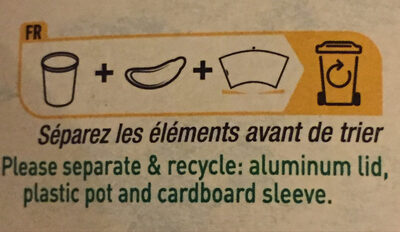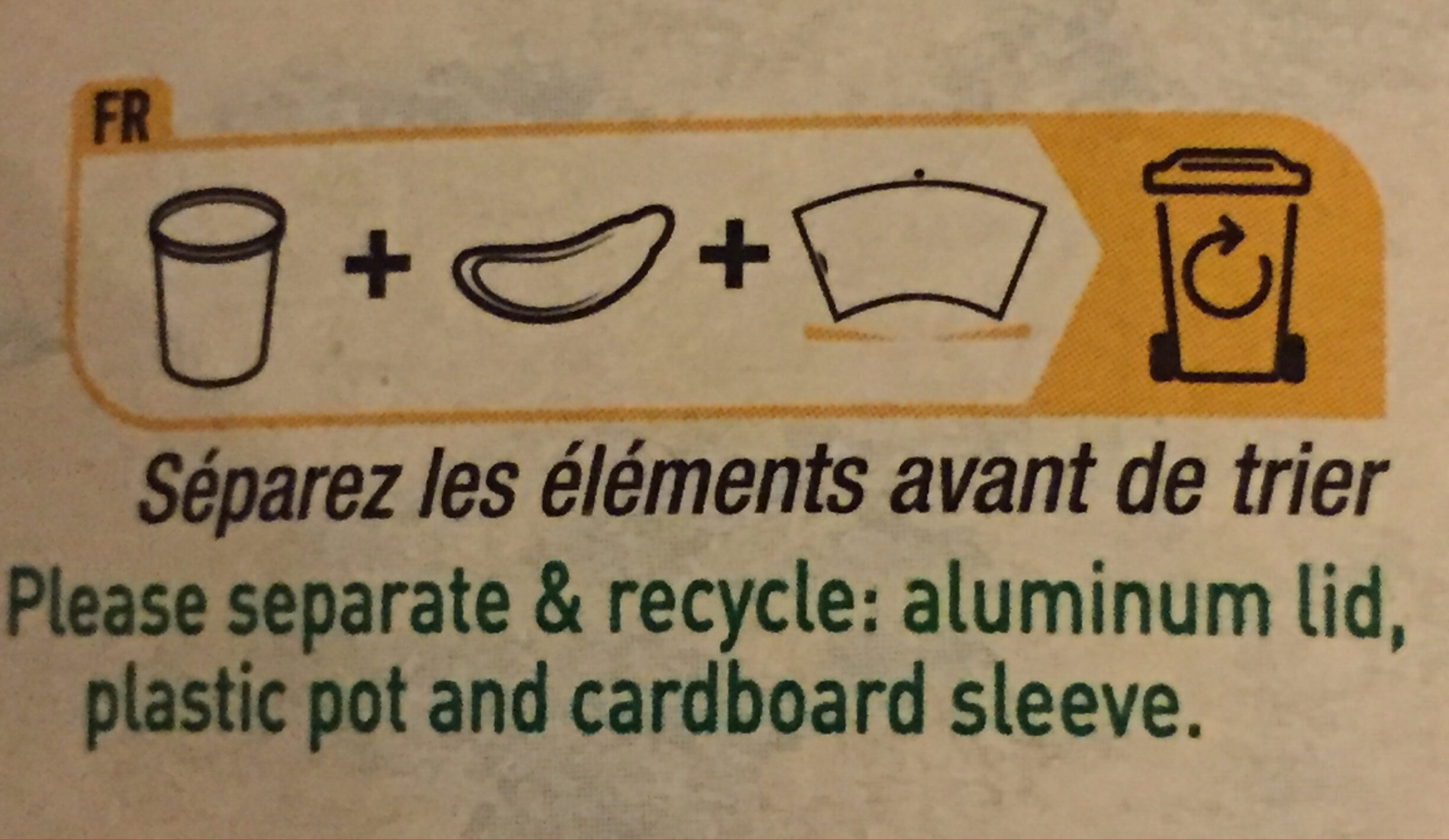So soja à la grecque nature - Sojade - 400 g
Barcode: 3273220182574 (EAN / EAN-13)
Common name: Spécialité biologique au soja fermentée, nature, texture «A la Grecque»
Quantity: 400 g
Packaging: fr:Informations sur carton, fr:Opercule aluminium, fr:Pot plastique
Brands: Sojade
Categories: Plant-based foods and beverages, Fermented foods, Dairy substitutes, Desserts, Non-dairy desserts, Non-dairy fermented foods, Non-dairy yogurts, Soy milk yogurts, Plain soy yogurts
Labels, certifications, awards:
No gluten, Organic, Vegetarian, EU Organic, Non-EU Agriculture, Vegan, EU Agriculture, EU/non-EU Agriculture, FR-BIO-01, Nutriscore, Nutriscore Grade A, The Vegan Society, AB Agriculture Biologique, Agriculture UE, Agriculture UE/Non UE, Agriculture non UE, Bio, Bio européen, Riche en protéines végétales, Sans gluten, Sans sucre, Soja Français, Soja Français sans OGM, Végétalien, Végétarien


Origin of ingredients: France
Manufacturing or processing places: Rennes
Link to the product page on the official site of the producer: https://www.sojade.fr/produits/soja/dess...
Stores: Biocoop
Matching with your preferences
Report a problem
Data sources
Product added on by openfoodfacts-contributors
Last edit of product page on by drspazio.
Product page also edited by annelotte, brsc, chevalstar, foodvisor, greentea365, kiliweb, moon-rabbit, packbot, quechoisir, quentinbrd, ramses16, raphael0202, roboto-app, scanbot, segundo, smoothie-app, vmeurisse, worldtest, yuka.WmZBbUwvNDZwYUkydWNNczlCWGUxWXBjNnBEM1dHMjdCc2t5SVE9PQ, yuka.ZHAwY09mUllndVVqdE1NVCt3dmVwdUJWNHI2alYzNlRlK1VySVE9PQ, yuka.sY2b0xO6T85zoF3NwEKvlkdJVobMrW7lKAfml22l2ceoL77LQdVA_pLaM6s, yuka.sY2b0xO6T85zoF3NwEKvllVMY8eEjwmZOwbQukiKwoiXM43uOd9Kw9OiGao.














